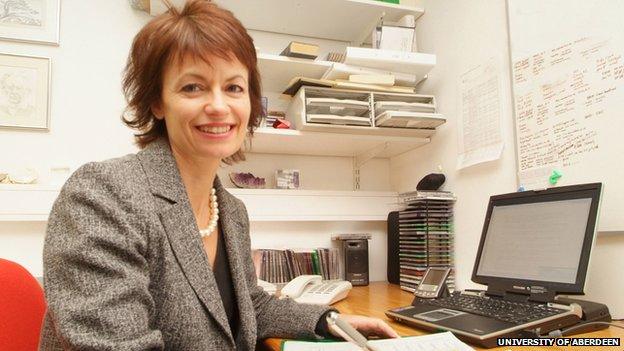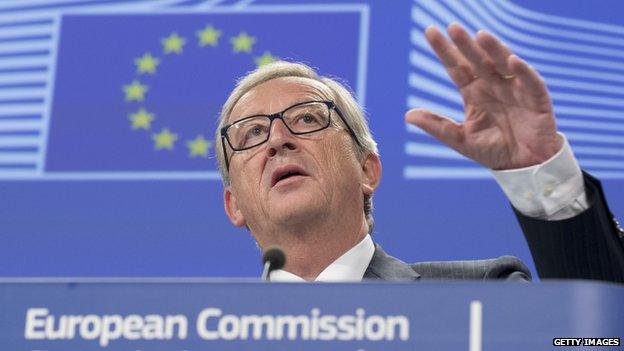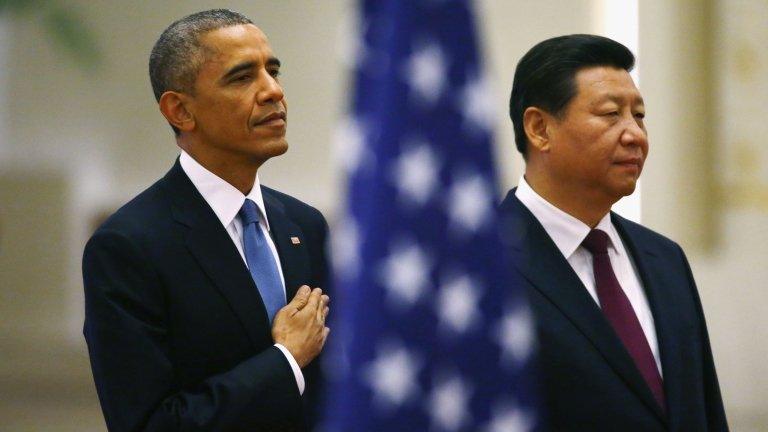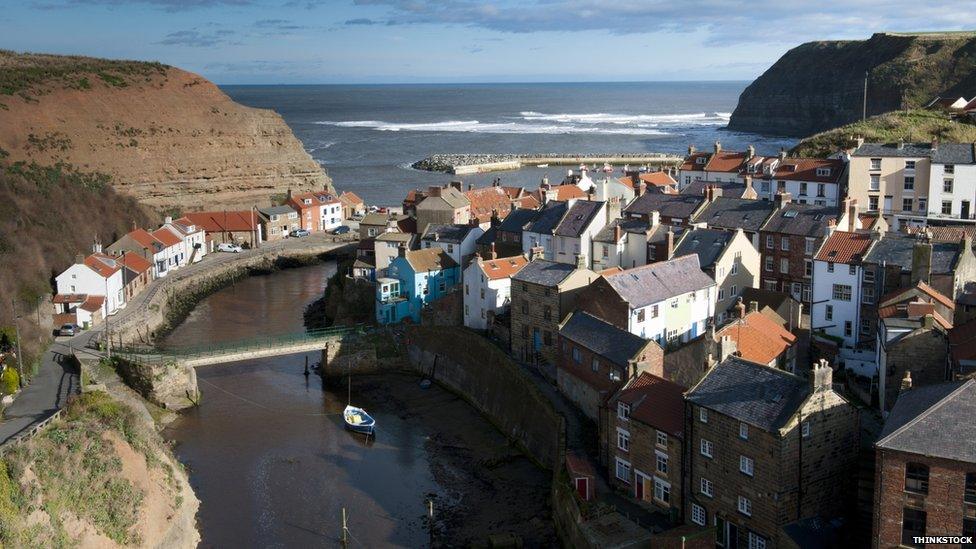Researchers 'appalled' as EU chief scientist role is axed
- Published

Prof Anne Glover from the University of Aberdeen was appointed as Chief Scientific Adviser in 2012
Researchers across Europe have expressed dismay at the scrapping of the role of EU Chief Scientific Adviser (CSA).
The EU Commission confirmed that the position held by Prof Anne Glover since 2012, would not be extended.
Prof Glover had incurred the wrath of green groups with her open support for genetically modified crops.
The final decision came on the day Europe's scientists were celebrating the success of the Rosetta mission.
Appointed to the role by the the former head of the EU Commission, Jose Manuel Barroso, the job was to "provide independent expert advice on any aspect of science, technology and innovation as requested by the President".
But Prof Glover, a former chief scientist for Scotland, ran into trouble with her views on GM.
In contrast to the official EU position, Ms Glover said that opposing the technology was "a form of madness", external.
During the Summer, green groups published a letter to the incoming President of the European Commission, external, Jean-Claude Juncker, urging him to scrap the role.
They claimed that the position was "unaccountable, intransparent and controversial".
The CSA, according to the letter, "presented one-sided, partial opinions in the debate on the use of genetically modified organisms in agriculture, repeatedly claiming that there was a scientific consensus about their safety".
Despite strong support from scientific bodies, external, Prof Glover's mandate expired at the end of the Barroso presidency - and Jean-Claude Juncker has decided to formally close the Bureau of European Policy Advisers which included the CSA.
Ironically, the final decision was rolled out as European scientists were celebrating the dramatic landing of the Philae lander on the Comet 67/P.
"Today is such a special day and typifies the Europe I love," Prof Glover tweeted, external.
"Big ideas, big minds, big hearts, big ambition, big future."
The axing of the job drew the ire of British scientists in particular.

The new President of the European Commission has now ended the role of chief scientific adviser
"Scientific advice must be central to EU policy making, otherwise you run the risk of having important decisions being unduly influenced by those with mixed motives," said Prof Sir Paul Nurse, from the Royal Society.
"If the Commission has a plausible plan for ensuring that scientific evidence will be taken seriously they need to start sharing it with people soon, otherwise they will encourage those who portray the Commission as out of touch and not willing to listen to informed advice."
These sentiments were widely echoed, with researchers calling it "a sad day for science".
"I am appalled at the abolition of the CSA post," said Prof Nigel Brown, president of the Society for General Microbiology.
"Many of the major challenges facing Europe - climate change, food security, healthy ageing, disease control - require scientific input to policy at the very highest level. This is disastrously short-sighted."
Some British members of the European Parliament were angry about the closing of the post, when they believed they had received assurances from the incoming President that the role would be preserved.
"I am deeply disappointed by this news. I wait to hear the details but on the face of it this looks like a complete volte face by Mr Juncker," said Julie Girling, Conservative MEP for South West England and Gibraltar.
"I fear Mr Juncker has caved in to the green lobby."
No victory
Environmental groups though were keen to stress that the closing of the post wasn't a victory for them. They argue that the EU already has a formal system in place gathering evidence and assessing risks. They believe the CSA role distorted the process.
They pointed to a dispute over endocrine disrupting chemicals, external, so called gender-benders. According to campaigners, the involvement of the CSA added to confusion over the role of these agents.
"Scrapping the CSA post was about the integrity of science advice, the clarity and independence and it's about getting the science right," said Doug Parr from Greenpeace.
"Those critical of the decision are misunderstanding what's going on in Brussels - they think that somehow a CSA equals integrity of the scientific process and good advice, I don't think it does."
Greenpeace share concerns with other researchers that the row may damage the overall role of science within Europe.
It remains unclear as to what President Juncker will now do, though there are rumours he may appoint advisors across five key areas of policy.
This might lead, according to Prof Alberto Alemanno, from HEC Paris, to a broader definition of what science means.
"We only had the chief scientist represent the hard sciences, but not the social sciences," he said.
"If we are going to have five policy areas perhaps we will adopt a broader perspective towards the sciences, it is also possible to interpret the Juncker decision in a more positive way."
Follow Matt on Twitter @mattmcgrathbbc, external.
- Published12 November 2014

- Published10 July 2014

- Published7 November 2014
